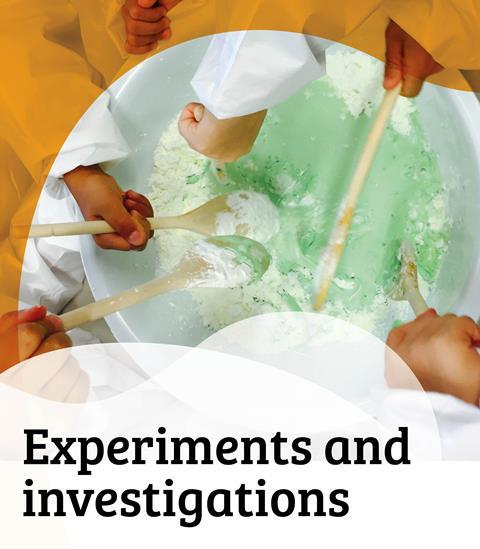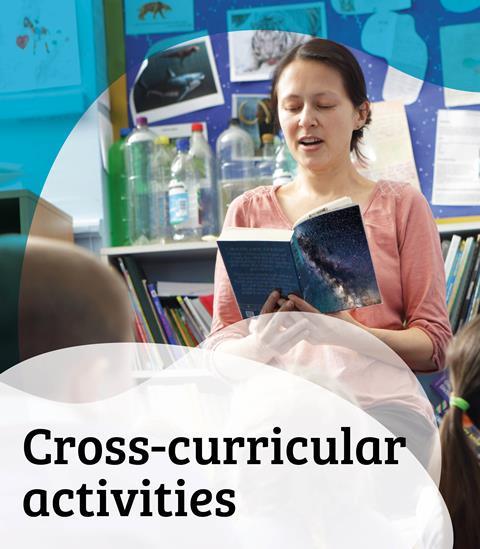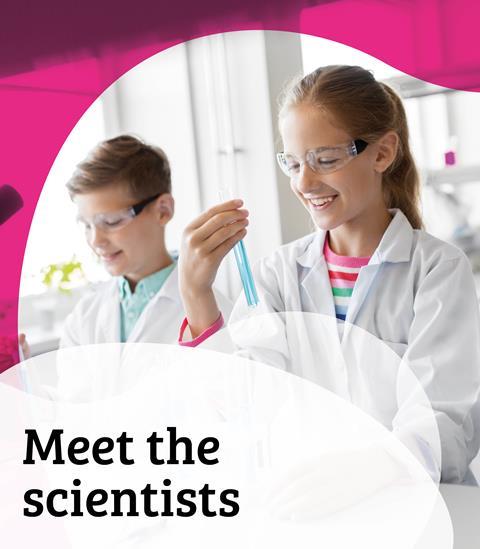The Royal Society of Chemistry recognises the value of primary science in developing a person’s chemical understanding. Through the teaching of fundamental topics, such as changing of state and properties of materials, you are laying the foundations of chemistry.
To support Scottish teachers of early to second level chemistry, we have analysed the Curriculum for Excellence’s Experience and outcomes and Concept development in the sciences in the sciences, and identified the experiences and outcomes that are relevant to chemistry.
The experiences and outcomes identified have primarily come from the science curriculum; however there are some chemistry relevant statements that have been selected from the technology curriculum.
We have curated collections for each statement, to support you in identifying the most appropriate resources from The Royal Society of Chemistry and using them with your class.
Planet Earth
|
Topic |
Level |
Experiences and outcomes |
Information from Sciences: Concept development in the sciences |
|
Biodiversity and interdependence Learners explore the rich and changing diversity of living things and develop their understanding of how organisms are interrelated at local and global levels. By exploring interactions and energy flow between plants and animals (including humans) learners develop their understanding of how species depend on one another and on the environment for survival. Learners investigate the factors affecting plant growth and develop their understanding of the positive and negative impact of the human population on the environment. |
Early |
||
|
First |
|||
|
Second |
Line of development 03 At second level (SCN 2-03a), learners can explore the role of fertilisers through practical activities involving, for example, house plant nutrient fertilisers. the effect of factors such as dilution of the fertiliser or use of different fertilisers can be investigated. |
||
|
Energy sources and sustainability Learners explore types, sources and uses of energy and develop their understanding of how energy is transferred and conserved. They consider the relevance of these concepts to everyday life. They explore the nature and sustainability of energy sources and discuss benefits and assess possible risks to form an informed view of responsible energy use |
Early |
||
|
First |
|||
|
Second |
SCN 2-04b Through exploring non-renewable energy sources, I can describe how they are used in Scotland today and express an informed view on the implications for their future use. |
||
|
Processes of the planet Learners explore the changing states of matter and the physical and chemical processes which influence Earth’s atmosphere and oceans. They learn about climate change as a natural process in time as well as the result of human activity. Through connections with collaborative studies of landscape, weather and climate in social studies they build up an integrated picture of the dynamic nature of Earth. |
Early |
Line of development 05 The concept of the changing states of water can be developed progressively throughout the early and first levels (SCN 0-05a and 1-05a), including the use of terms such as melting, freezing, boiling, evaporation and condensation. |
|
|
First |
|||
|
Second |
Line of development 05 At second level (SCN 2-05a), learners explore the water cycle in nature by applying their knowledge and understanding of changing states of water. They are introduced to the concept of matter existing in three major states (solid, liquid and gas) and should be able to describe some observable physical properties of each. |
Forces, electricity and waves
|
Topic |
Level |
Experiences and outcomes |
Information from Sciences: Concept development in the sciences |
|
Electricity The learner’s knowledge about electricity begins with knowing how to use it safely and this aspect is reinforced throughout their learning. They develop their understanding of electricity as a means of transferring energy by investigating circuits and building chemical cells. Learners develop their understanding of series and parallel circuits and of electrical and electronic components and apply their knowledge to the process of designing, constructing, testing and modifying. |
Early |
||
|
First |
|||
|
Second |
Line of development 10 At second level (SCN 2-10a), learners develop the idea that some chemical reactions can produce an electric current (for example by using two different strips of metal and lemons/limes/potatoes), leading to an awareness that the electricity generated can be used to power an appliance such as a light bulb or potato clock. |
Materials
|
Topic |
Level |
Experiences and outcomes |
Information from Sciences: Concept development in the sciences |
|
Properties and uses of substances By exploring the properties of different substances and how they can be changed, learners gradually develop their understanding of the connection between structure and properties. They explore the development of new substances which have useful properties, and begin to relate physical and chemical properties to models of atomic structure. Learners begin to use symbols and chemical formulae as a way of communicating information about elements and compounds.
|
Early |
Line of development 15 At early level (SCN 0-15a), learners can choose materials for different uses based on their physical properties (e.g. strength, hardness, resistance to water). This is further developed in SCN 1-15a, where learners explore a more extensive range of materials and their physical properties (e.g. colour, hardness, texture, smell, shape, weight/mass). The basic properties of metals can be explored and related to their uses e.g. conduction of heat and electricity, hardness, shiny appearance, can be moulded. The sources of some of the Earth’s resources can be explored e.g. wood, soil, water, minerals, fuels, metals. |
|
|
First |
|||
|
Line of development 15 At second level (SCN 2-15a) learners explore familiar changes in substances to produce other substances with different characteristics e.g. decaying of animal or plant matter burning cooking rusting. |
|||
|
Second |
Line of development 16a At second level (SCN 2-16a) learners explore mixtures of substances and methods used to separate them into their constituent parts on the basis of their observable properties e.g. particle size shape magnetic attraction. |
||
|
Line of development 16b At second level (SCN 2-16b) learners participate in practical investigations involving dissolving and gain an appreciation of the importance of changing one variable at a time e.g. temperature of water physically changing the particle size volume of water stirring to make the comparison fair. |
|||
|
Earth’s materials Learners develop their knowledge and understanding of substances that make up the Earth’s surface. Properties uses and methods of extraction of such materials are explored. Opportunities exist to discuss the importance of carbon compounds derived from crude oil to our lives. |
Early |
||
|
First |
|||
|
Second |
Line of development 17 At second level and third level (SCN 2-17a and SCN 3-17a) learners progressively develop their understanding of the formation characteristics and uses of rocks minerals sand and soil. |
||
|
*Please note – neither the Curriculum for Excellence or Science: Concept development in the sciences identify TCH 2-02a as relevant to the science curriculum. However we think that there is an overlap of content here. |
|||
|
Chemical changes Learners gradually develop an understanding of chemical changes. They consider processes which take place in the environment and in the laboratory and develop their understanding of the environmental impact of some changes. They develop their understanding of energy changes in chemical reactions and some of the factors affecting the rates of reactions. Learners develop the use of chemical names formulae and equations as a way of conveying information about chemical changes. |
Early |
||
|
First |
|||
|
Second |
Line of development 18 At second level (SCN 2-18a) learners explore common uses of water for example as a solvent coolant heat source. They can participate in practical activities to clean different water samples using a range of methods such as filtering evaporating use of filter beds. |
||
|
Line of development 19a At second level (SCN 2-19a) learners safely carry out practical activities using readily-available chemicals e.g. household chemicals; they investigate chemical reactions leading to an understanding that a new substance is always made when a chemical reaction takes place. |
Topical science
|
Topic |
Level |
Experiences and outcomes |
Information from Sciences: Concept development in the sciences |
|
Topical science By considering current issues of science learners increasingly develop their understanding of scientific concepts and their capacity to form informed social moral and ethical views. They reflect upon and critically evaluate media portrayal of scientific findings. |
Early |
SCN 0-20a I can talk about science stories to develop my understanding of science and the world around me. |
*Please note – we do not currently have a resource collection that is relevant to SCN 0-20a. |
|
First |
|||
|
Second |
|||
These tables contain public sector information from the Curriculum for Excellence and Sciences:concept development in the sciences licenced under an Open Government licence v3.0 © Crown copyright 2012.









2 readers' comments